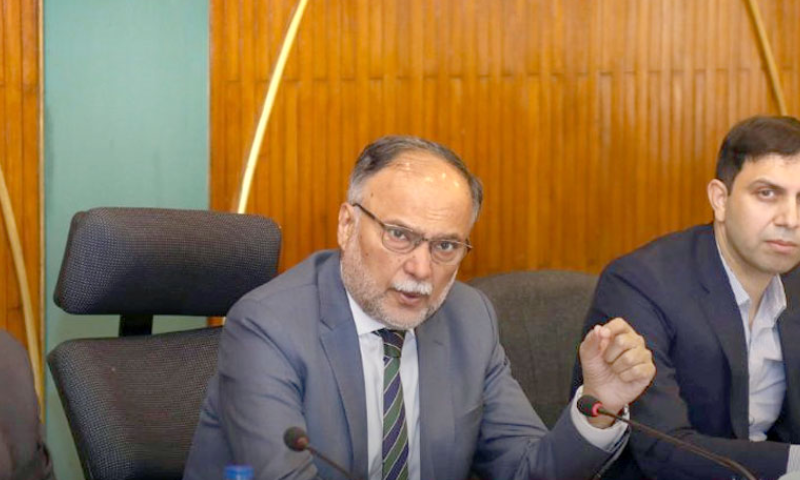ISLAMABAD: Federal Minister for Planning, Development, and Special Initiatives, Professor Ahsan Iqbal, reaffirmed Pakistan’s commitment to resilience against climate change and natural disasters during a ceremony held by the National Disaster Risk Management Fund (NDRMF) on Wednesday.
At the Accreditation Award event, the minister praised the diligent efforts of the NDRMF and its partners, which include representatives from federal ministries, provincial authorities, disaster management agencies, and international organizations, all of whom are crucial to advancing Pakistan’s climate resilience initiatives.
Professor Iqbal noted Pakistan’s unique situation as a nation contributing less than 1% to global emissions while being one of the most affected by climate disasters. He highlighted the disparity between verbal support for Pakistan’s climate efforts and the lack of substantial international funding, which has forced the country to cope with the repercussions of climate change with minimal global assistance.
Reflecting on recent climate events, he pointed out that although the international community has expressed solidarity, much of the financial aid offered has been in the form of loans rather than grants. This has led Pakistan to redirect existing loans for education and health sectors toward flood recovery efforts. While there is an international commitment of $70 billion for loss and damage due to climate impacts, only $70 million has been allocated to date, leaving Pakistan and other vulnerable nations struggling to secure essential resources for climate adaptation and resilience.
READ ALSO: Iran Guards Head Warns Israel of ‘Bitter Consequences’ Following Strike: Media
The Planning Minister emphasized the resilience shown by federal and provincial governments, public institutions, and particularly the Pakistani people. He commended communities for their strength and unity during disasters, stating, “The resilience displayed by our communities is Pakistan’s greatest strength. This spirit will empower us to confront future challenges more effectively.”
Comparing recent floods, Professor Iqbal discussed advancements in Pakistan’s disaster response capabilities. He said that while the 2022 floods were nearly three times larger than those in 2010, improved preparedness and response systems significantly reduced potential fatalities. This progress was attributed to enhanced health infrastructure and community coordination, which helped prevent disease outbreaks in affected areas.
He outlined Pakistan’s comprehensive disaster risk management plan, a key component of the nation’s five-pillar economic strategy to tackle climate challenges. This strategy encompasses initiatives across various sectors, including disaster preparedness, food and water security, and resilient infrastructure. “Disasters cannot be prevented, but we can significantly mitigate their impact through strategic preparation. This principle guides our national policy,” he asserted.
Turning to regional development, Professor Iqbal acknowledged that countries such as India, Bangladesh, Malaysia, and South Korea have achieved significant progress, often surpassing Pakistan. However, he dismissed the idea that Pakistan lacks the intelligence, resources, or integrity found in these nations, emphasizing that stability, policy continuity, political commitment, and reform are essential for any nation’s advancement.
“If we function as ‘Team Pakistan,’ we can ensure our nation’s success and resilience. Our collective strength lies in unity, and by working together, we can tackle the challenges posed by climate change and economic pressures,” he stated, urging all Pakistanis to recognize their shared responsibility in fostering a resilient and prosperous future.
The Planning Minister shared his vision for a strong, united Pakistan as the country approaches its centenary in 2047. He encouraged Pakistanis to adopt innovative methods, explore new resources, and strengthen collaboration, emphasizing that such evolution is crucial for overcoming past setbacks.


























